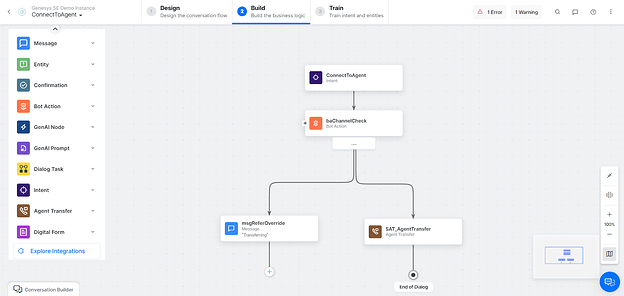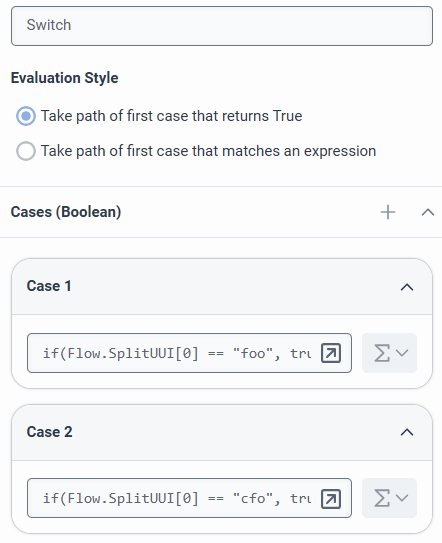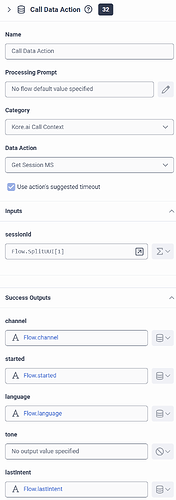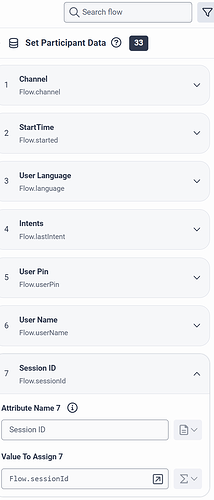Context
For integrations with other CCaaS platforms, we typically utilize a SIP integration pattern where the provider sends a SIP INVITE to our platform. We perform automation, and if the caller requests an agent, the call is transferred back using SIP REFER.
Usually, this setup can be configured using the standard settings within SmartAssist or Contact Center AI, including SIP headers. However, Kore Voice Gateway applies Proper Case normalization to the SIP header key, altering expected casing for the User-to-User header. Some vendors, such as Genesys, do not recognize this modified casing, causing them to ignore the header.
For example, setting the User-to-User header as expected results in it being converted to “User-To-User,” leading to non-recognition by Genesys.
Workaround
A workaround involves leveraging the voiceUtils library to interact with the gateway for fine-tuned configuration. This solution applies to both XO 10/SmartAssist configurations using a SmartAssist instance bot and XO 11 setups utilizing the ConnectToAgent task or a similar agent transfer function.
High-Level Steps:
- The Experience Flow should direct to an Automation node to manage the interaction.
- Agent transfer in the voice channel short-circuits the standard Connect to Agent dialog.
- A Message node is required with the SmartAssist Gateway channel override.
- The SIP URI for REFER is hardcoded in the Advanced Messaging template.
- The User-to-User header is appended as a query parameter to the SIP URI.
- The header value must be URL encoded.
Dialog Flow
In the SmartAssist instance bot or XO 11 App:
- Locate or create the
ConnectToAgentDialog Task. - Implement a channel check to prevent interference with digital channel transfers. This can be done by checking
context.session.BotUserSession.channels[0].typeforkorevg. - Transition out of the Bot Action:
- For
korevg, route to a Message node. - Other channels should use the default SAT_AgentTransfer agent transfer node.
- For
Example Code Snippet:
var sessionId = context.session.BotUserSession.conversationSessionId;
koreDebugger.log(`Force refer from instance bot for session ${sessionId}`);
var transferUri = "<sip:+14445556666@kore.SEDemoAC-KoreSmartAssistVoice.byoc.usw2.pure.cloud?User-to-User=XXcfo%7C" + sessionId + "%3Bencoding%3Dascii>";
print(voiceUtils.refer("Transferring you now", transferUri, {}));
Breakdown:
- Extracts
conversationSessionId. - Constructs
transferUriincluding:- SIP address for routing.
- Pipe-delimited (
%7C) values. encoding=ascii.
- Calls
voiceUtils.refer()with:- A playback message (optional).
- The constructed
transferUri. - An empty object for headers (not needed as headers are embedded in the URI).
Genesys Architect Flow
The transferUri directs to a non-routable number leading to a Genesys Architect Flow. Typically, the flow collects additional SIP header data before transferring the call to an agent.
General Pattern:
- Check for the existence of a UUID.
- Parse the UUID if needed (e.g., splitting pipe-delimited values into a collection).
- Store parsed data as Participant Data for future use.
- If routing data is included, apply a Switch node to determine the correct queue (e.g.,
BalanceCheckintent). - If a Session ID is included, invoke a Data Action to retrieve more information.
- Use Data Action output for:
- Variables.
- Participant Data.
- Agent scripts (screen pop) or reports.
Example Architect Node Configuration
Splitting Values Based on a Delimiter
- Extracts multiple values from
User-to-Userheader. - Converts them into a structured format for use in subsequent nodes.
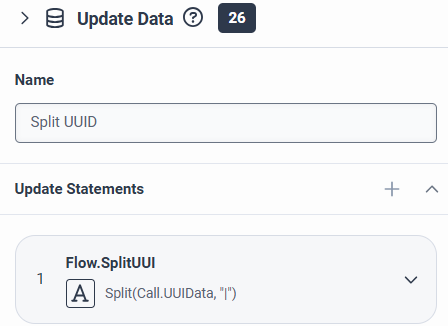
Switch Node
- Routes calls based on extracted values.
- Example: If intent =
BalanceCheck, route to the appropriate queue.
Data Action Call
- Fetches additional customer/session data.
- Used for enhancing routing or agent scripts.
Set Participant Data
- Stores retrieved data for later use.
- Allows information to be displayed on agent screens or used in analytics.
This document provides a structured approach to handling UUIDs via SIP for Genesys Cloud and Kore Voice Gateway, ensuring seamless integration and effective routing within the system.
